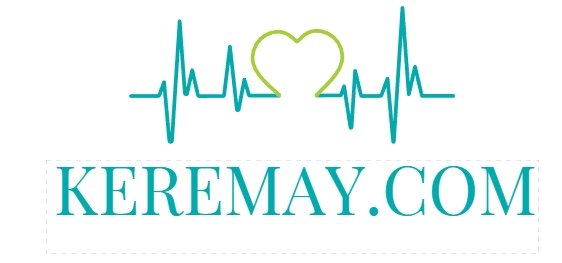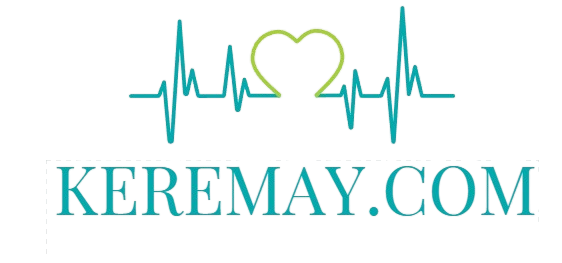As we age, our relationship with providing nourishment to our bodies changes. With the increased focus on maintaining good health as we get older, it is important to understand nutrition and the role it plays in healthy aging. This article will provide an overview of how nutrition is essential to achieving longevity, with tips on how to stay healthy and nourished as you age.
1. Nutrients for Optimal Aging
As we move into our twilight years, ensuring optimal nutrition is one of the most important things we can do to keep healthy and active. With the right nutrients, our bodies can still function at their peak, even with the natural aging process that we cannot control.
Protein is essential to proper functioning of our muscles and organs. As we age, our bodies tend to tell less protein than when we are younger, yet we need it just as much. High-quality sources of protein such as fish, poultry, lean cuts of red meat, tofu, and lentils, are essential for our body’s building blocks.
Fiber is a very important factor in any older adult’s diet. Consuming fiber can help promote better digestion and reduce the risk of certain diseases. Whole grains, fruits, and vegetables are an easy way to get important fiber into our daily diets.
Vitamins and Minerals are essential in fighting age-related deficiencies. Older adults should take a multivitamin that specifically caters to an aging person’s needs. Some of the most important vitamins and minerals to look out for are:
- Vitamin D – helps your body absorb calcium and promote healthy bone structure
- Calcium – helps strengthen bones and teeth
- Vitamin B12 – helps the body to create new cells
- Folate – helps produce new red blood cells
Having the right nutrition is the best way to ensure you can have a healthier and more active life, even as you age. Eating nutrient-rich foods, supplemented with a quality daily multivitamin is the key to ensuring long-term health and wellness.
2. Growth and Carnination through Balanced Nutrition
A balanced diet is one of the best ways to ensure your body is receiving the nutrients it needs to grow and develop. Eating nutritious food is central to maintaining a healthy lifestyle and optimizing your physical and mental wellbeing. When it comes to obtaining the vitamins, minerals and other essential components of a balanced diet, individuals should strive to include a variety of foods from all five of the major food groups:
- Grains (such as wheat, rice and oats)
- Vegetables
- Fruits
- Dairy products (such as milk and cheese)
- Proteins (such as beans, chicken, and fish)
It is important to note that it is not just the amount of food that matters but also the quality of your food choices. Eating a wide variety of nutrient-packed foods can provide your body with the energy and nutrients it needs to operate efficiently and produce hormones which are essential for growth and development. Additionally, nutrient-dense foods can help you maintain a healthy weight, reduce your risk of various diseases, and provide your body with essential vitamins and minerals.
Vitamin C is an important nutrient for both growth and carnination. It is necessary for a healthy immune system and plays a role in creating collagen, which contributes to healthy nails, hair, and strong bones. Foods that are rich in Vitamin C include oranges, strawberries, broccoli, and peppers.
Protein is another essential macronutrient for growth and carnination. Protein helps to build and repair muscles, balance hormones, and provide essential energy for the body. Eating a variety of protein-rich foods such as lean meats, seafood, eggs, nuts, and legumes can help to ensure your body receives enough protein to meet its needs.
3. The Role of Antioxidants for Healthy Aging
As we age, it is paramount to take care of our health. One of the most important ways to do that is to increase our intake of antioxidants. Antioxidants play an important role in promoting healthy aging, and can help protect us from the damaging effects of oxidative stress.
What are Antioxidants?
Antioxidants are substances found naturally in fruits, vegetables, nuts, and seeds. They help to protect our bodies from damage caused by free radicals, which are molecules that can damage our cells and increase our risk of disease.
What are the Benefits of Antioxidants?
Antioxidants can help protect against the damaging effects of oxidative stress, which can lead to chronic diseases such as heart disease, cancer, and diabetes. They can also protect against age-related conditions such as cognitive decline and wrinkles. Additionally, antioxidants can help boost the immune system and reduce inflammation, both of which can help with healthy aging.
How Can I Increase My Antioxidant Intake?
The best way to increase your antioxidant intake is by eating a variety of fruits and vegetables every day. You should also choose nuts, seeds, and whole grains that are high in antioxidants. Additionally, studies have shown that supplementation with antioxidant supplements can be beneficial in increasing overall antioxidant levels and promoting healthy aging.
- Consume a variety of fruits and vegetables daily
- Choose nuts, seeds, and whole grains high in antioxidants
- Consider supplementing with antioxidant supplements
Antioxidants are key to promoting healthy aging, and by increasing their intake through diet and supplementation you can help protect yourself from the damaging effects of oxidative stress.
4. Eating for Longevity: Maintaining Good Nutrition over Time
When it comes to maintaining good nutrition over time, everyone’s habits should include eating for longevity. Taking a proactive approach to healthy eating can have substantial benefits to your overall quality of life. Here’s a few tips and tricks to make sure you’re getting the right amount of the right nutrition over time:
- Make sure to drink plenty of water and avoid sugary drinks. Water is essential for hydration, while sugary drinks can be filled with empty calories.
- Balance your plate with a variety of plant-based foods. Vegetables, fruits, legumes, and whole grains provide a variety of vitamins, minerals, fiber, and other nutrients.
- Limit your intake of red and processed meats. These can be high in saturated fats and sodium, which can have harmful effects on your health.
- Try to incorporate healthy fats into your diet. Foods high in unsaturated fats, like olive oil, nuts, and avocados can help reduce cholesterol levels.
Plan ahead and stay organized. Meal-planning is a great way to make sure you’re getting enough of the right nutrients. It also helps to save time and money in the long run. Consider buying pre-chopped fruits and vegetables to make it easier to incorporate healthy meals into your regular routine.
Pay attention to your lifestyle changes. As you age, your nutrition needs can change, so it’s important to adjust your diet accordingly. For example, if you become more physically active, you may need to look into increasing your intake of protein. If you’re having trouble following a healthy diet plan, talk to a doctor or nutritionist who can help you make the right choices for your lifestyle.
Eating for longevity can be a challenging task. However, with the right plans and strategies in place, you can easily make sure you’re getting the nutrition you need to stay healthy over time. With patience, practice, and consistency, it’s possible to maintain a healthy diet for many years to come.
Nourishing your body with nutritious foods is an important step to take to promote healthy aging. With the right food choices, you can have a healthier life, look and feel better, and ensure better overall health and well-being. Keep these tips in mind and the path to a healthier you may be within reach.



